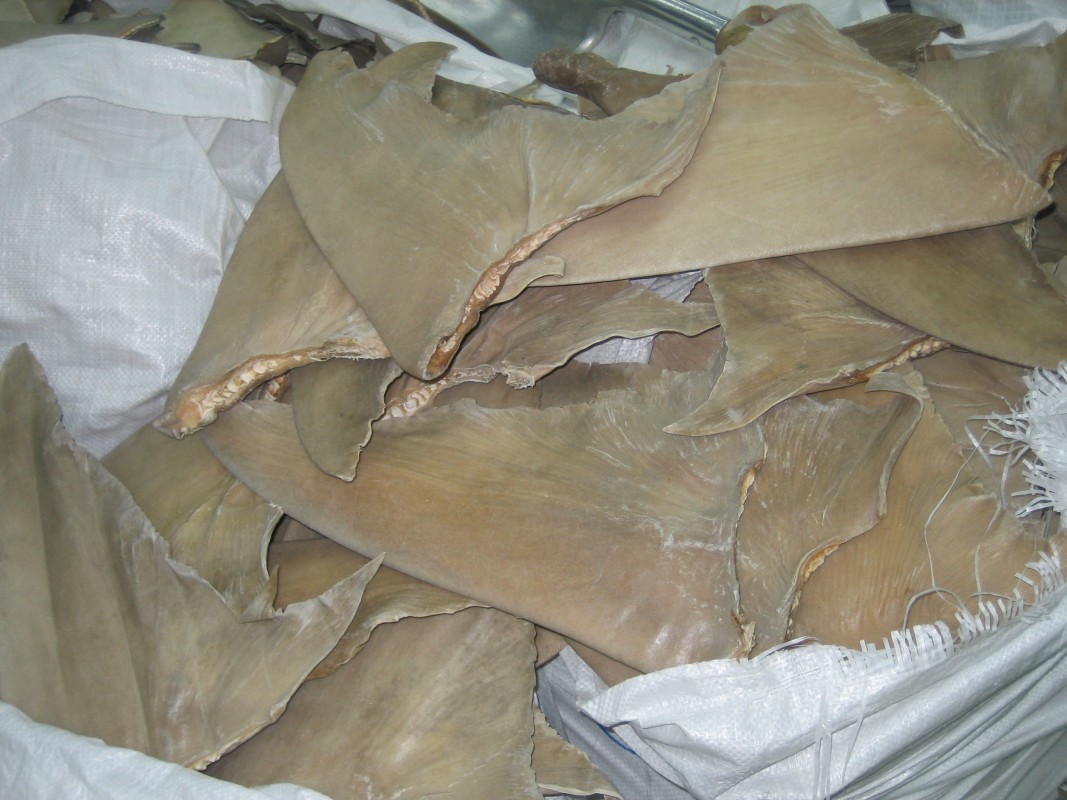Priced Off the Menu? Palau’s Sharks Are Worth $1.9 Million Each, a Study Says

PARIS — Sharks can be worth far more when they are swimming around the reef than when they are in a bowl of soup — as much as nearly $2 million each, in fact, according to the results of a study released Monday.
For the study, researchers from the Australian Institute of Marine Science considered the expenditures of divers who travel from around the world to the tiny Pacific nation of Palau to dive with the mainly gray reef and reef whitetip sharks that inhabit its waters, which were declared a shark sanctuary in 2009.
As a remote country of more than 300 islands — Manila, 530 miles away, is the closest city of consequence — Palau does not have many attractions beyond diving, so spending by international tourists on airfare, lodging and diving makes up an important part of the nation’s economy.
The economic logic is straightforward: diver tourism contributes about 39 percent of the country’s gross domestic product of $218 million, and 21 percent of divers chose their vacation there specifically to see the sharks, meaning that tourism to view sharks contributes about 8 percent of G.D.P., the study said. The researchers concluded that the roughly 100 sharks that inhabit the prime dive sites were each worth $179,000 annually to the island nation’s tourism industry, and that each shark had a lifetime value of $1.9 million.
Sold in pieces for their fins and meat, those same 100 sharks would be worth only about $10,800 total, the researchers estimated.
“It clearly indicates that no matter how you slice it, that a shark is worth more in the water than the sum of its parts when it’s cut up and sold,” said Matt Rand, director of global shark conservation at the Pew Environment Group, which financed the study.
The Australian researchers were not the first to reach this conclusion, but they found individual sharks to have a much higher value than previous studies did. A study conducted in the Maldives had found the sharks to be worth $33,500 each to the government of that country. The Bahamas, cognizant of the tourism draw, bills itself as the “Shark Diving Capital of The World.”
Millions of sharks are killed each year for their fins or as bycatch, but there has been halting political progress toward reducing the pressure, like the creation of Palau’s shark sanctuary, the world’s first. Just a few years earlier, Palau had been considering opening a shark fishery with the aim of exporting fins.
Local residents now gain an estimated $1.2 million annually from the shark-diving trade, the researchers found, while the government reaps about $1.5 million.
With warm clear seas and World War II wrecks, Palau is a special place, of course. Mark Meekan, principal research scientist at the Australian Institute of Marine Science and the lead researcher for the study, acknowledged in an interview that the same economics might not apply to sharks in, say, the cold waters of the North Atlantic.
Still, there is a strong argument that sharks are an economically valuable part of the ecosystem, he said, noting that the Chesapeake Bay scallop industry was devastated in recent years by a proliferation of cownose rays caused partly by the overfishing of the rays’ main predators, which include hammerheads and other sharks.
Mr. Rand of the Pew Environment Group argues that even if a direct dollar figure cannot be attached to each shark, they are worth protecting.
“People understand that when you take all the wolves out of Yellowstone or the lions out of the Serengeti, that there’s going to be quite an effect on the ecosystem,” he said. “It’s the same with the oceans, where sharks are the top-order predators.”
Sharks grow slowly and give birth to few young, Mr. Rand noted. “Once they lose these species, they won’t recover like other fish,” he said, adding that quick action was therefore needed by governments.
The United States, the European Union and many other countries have banned the most widely condemned type of shark fishing, which involves cutting the fins from live sharks and dumping their bleeding carcasses back into the sea. Some countries have banned the shark fin trade altogether, but Japan, China and many Southeast Asian nations continue to allow, if not encourage, finning.
“Fishermen see sharks as a commodity,” Mr. Meekan said. “We see them as an important part of the ecosystem. That’s a very hard argument to make to them. But make an economic argument, that it’s worth more letting people look at it than it is taking it, that’s something they can understand.”
The idea is catching on. The Maldives has declared itself a shark sanctuary, and tourism operators and conservationists in Fiji, the Bahamas and other dive destinations are now calling for shark protections.
Mr. Meekan said he hoped that Palau’s example would help encourage ecotourism in other places as well, like diving with whale sharks off Indonesia. “You can involve the people who would otherwise be involved in illegal fishing, showing them that the fish have far more value as a tourist draw,” he said.



